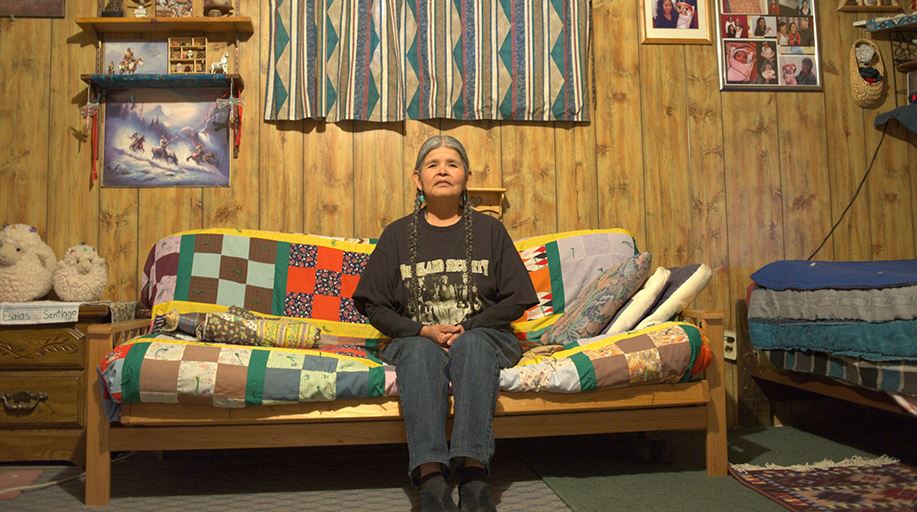Amá Review

‘They took our past with a sword and our land with a pen. Now they’re trying to take our future with a scalpel.’ – Unnamed Native American woman on forced sterilisations.
She thought she was getting an appendectomy. A year later, Jean Whitehorse discovered that she’d been sterilised. Barely into her twenties, she was devastated – she had harboured dreams of a big family, which would now never come to pass. Then there was the fury at having the procedure done without her knowledge.
Amá (the Navajo word for mother) investigates the forced sterilizations of Whitehorse and thousands of other Native American women during the sixties and seventies. In conversations with the women, their advocates, and doctors involved in both implementing and uncovering the unethical programme, Lorna Tucker’s documentary explores just how this horrific scheme was allowed to happen, and the heart-breaking effect it had on the women it targeted.
It’s clear from early on in her film that Lorna Tucker struck up quite a friendship with Jean Whitehorse. Though she is talking about intensely personal, painful matters, Whitehorse appears completely comfortable in the presence of the documentarian, and this friendly atmosphere allows her to be open about what she experienced. Whitehorse is excellent at explaining Native American concepts and attitudes to a non-Native audience – the most pertinent here being that whilst the government measures wealth in terms of money, for the Navajo population ‘wealth is your children’. Aside from being lied to and operated on without their consent, these women have been robbed of that wealth. In addition to Whitehorse, Tucker films two doctors who were intimately involved in these forced sterilisations, Dr Ravenholt with masterminding the regime, and Dr Rosenfeld with exposing it. Although he is convivial, Ravenholt doesn’t appear the slightest bit repentant over his part in the atrocity. Dr Rosenfeld – who nearly had his medical license revoked after uncovering the practice – is still fighting against forced sterilisations, forty years later. Justice is slow, if it happens at all.
In addition to Whitehorse, Tucker films two doctors who were intimately involved in these forced sterilisations, Dr Ravenholt with masterminding the regime, and Dr Rosenfeld with exposing it. Although he is convivial, Ravenholt doesn’t appear the slightest bit repentant over his part in the atrocity. Dr Rosenfeld – who nearly had his medical license revoked after uncovering the practice – is still fighting against forced sterilisations, forty years later. Justice is slow, if it happens at all.
Of course, the forced sterilizations aren’t the only discrimination the Native American population have suffered at the hands of the US Government. Tucker makes sure to put that particular injustice in the context of all those that came before. From the Long Walk Of The Navajo – in which thousands of tribespeople were forcibly moved from Arizona to New Mexico, many slaughtered along the way – through the Indian Relocation Act, up to the recent showdown over the Dakota Access Pipeline, Amá paints a picture of a people who have endured, and continue to endure, unfathomable hardships. While the documentary ends with a hopeful look at the next generation of Native American protestors, there’s an understandable vein of frustration that these protests will never be able to end. To survive in the USA, they have to keep fighting.
A passionate insight into an enormous injustice, Amá illuminates the painful human cost of forced sterilizations. Whether the US government listens and gives them the apology they deserve seems unlikely, but the bravery in sharing their stories is undeniable. These women won’t be quiet any longer.
★★★★
Amá is in UK cinemas from 6 December when it will have its World Premiere at Curzon Soho when it opens the Global Health Film Festival. Tickets can be purchased here.


